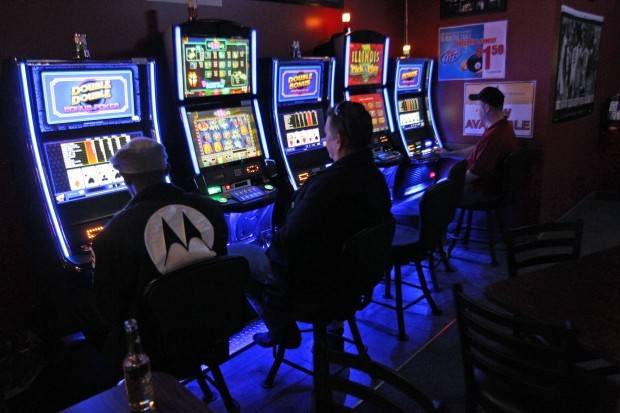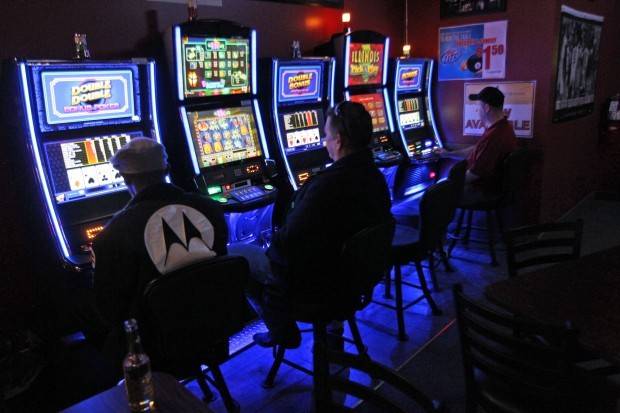
Many suburban video gambling machines aren’t paying off like they used to for the businesses that house them.
A Daily Herald analysis of video gambling revenue in 70 suburban locales shows the devices in 27 towns were generating less money per machine from August 2022 through July 2023 than they were during the same months a year earlier.
“It’s oversaturation because there are too many terminals out there now,” said Kevin McGourty, a semiretired gaming industry expert and watchdog from Chicago. “You can only pull so much from so many people until it diminishes the returns.”
State and municipal tax revenues from the machines have largely been unaffected, however, because the amount of wagering has remained the same; gamblers just have more places from which to choose nowadays.
“There’s a limited demand, so when there’s been substantial terminal growth, it will of course divert some revenue from Business A to Business B,” said Ralph Martire, executive director of the bipartisan Center for Tax and Budget Accountability.
Revenues from video gambling machines are divided among the terminal operators, business owners, state and municipalities. The revenue-splitting formula sets aside 65% for the terminal operators and business owners, who have a contracted revenue-sharing agreement. Then 29% goes to the state, 5% to municipalities or counties, and almost 1% goes to the Illinois Gaming Board to cover administrative costs.
Jim Iverhouse has had four terminals operating inside Copper Fiddle Distillery in Lake Zurich for roughly three years. He said he never looked at them as a revenue source, but he also doesn’t want them costing him. This year, the machines generated half of what they did last year.
“I’m definitely keeping an eye on it this year, because there’s costs involved with operating these things, too,” he said. “There’s electricity and licensing fees, plus the space they take up I could put in three or four tables.”
Businesses may suffer even if there isn’t a proliferation of devices in town.
Sleepy Hollow had the same number of terminals for the past 24 months, but the village saw revenue per machine drop by nearly 30% from one year to the next.
Antioch, Crystal Lake, East Dundee, Elburn, Long Grove and Third Lake all saw revenue per machine decline by more than 10% in the past year.
“The state also changed the rules on how many terminals can be in a business and the types of businesses that can offer them, with large truck stops now allowed to have 10 devices,” McGourty said. “We’re cannibalizing the marketplace, and the more liquor licenses they allow, the more gaming licenses they’ll allow with them.”
Meanwhile, tax revenues were up from one year to the next. The state received $818.1 million from August 2022 through July 2023. That’s $54.4 million more than the same 12 months a year prior, which translates to a 7% increase.
For municipalities, most saw modest increases as well because interest in video gambling hasn’t waned. Towns that might have seen a dip in revenues from the previous year may have lost terminals or be near other towns that gained the devices and thus lured away gamblers.
McGourty said business owners shouldn’t expect legislators to change regulations on video gambling to make it more business-friendly, because the state is making more money than ever.
Instead, he said, businesses should brace for additional losses.
“Get used to it,” he said.
